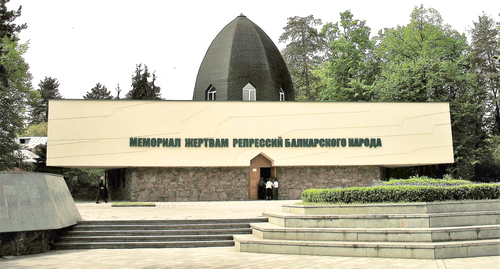On Balkars' Revival Day, KBR residents recollect life in exile
The Kabardino-Balkarian Republic (KBR) has held events in honour of the Revival Day of the Balkar people. Residents of the republic told the "Caucasian Knot" correspondent about the deportation and life's difficulties in exile.
In March 1944, during the Great Patriotic War (World War II), a total of 37,713 Balkars were deported to Central Asia. For 18 days of the travel in unequipped railway cars, 562 of them died. Only in 1957, Balkars were allowed to return to their homeland.
In 1994, the KBR President decreed to establish the Revival Day of the Balkar People to be marked on March 28. It was on this day in 1957 that the decree was signed by the Presidium of the Supreme Soviet of the USSR on the restoration of the Kabardino-Balkarian Autonomous Soviet Socialist Republic.
On March 28, the KBR marked the Revival Day by holding commemoration events throughout the republic.
Residents of Nalchik shared their memories about the deportation. "I was five years old when we were evicted," Marzhanat Kaigermazova told the "Caucasian Knot" correspondent. "From my mother's words, I know that soldiers came for us. They said: 'You will be taken far away; it's cold there; so dress warmly and take food with you and warm things'."
"We were taken to the Nalchik railway station and placed into freight cars. I don't remember the road well, but my mother said that when someone died in the car, they took him or her out at a station and left the body there – there was no time to bury, because the train stopped for no more than five minutes," Ms Kaigermazova has recalled.
Ismail Khadjiev, a pensioner, told the "Caucasian Knot" correspondent that he was 13 years old at the time of deportation. In Central Asia, he had to suspend his studies and go to work on a collective farm.
Kyazim Atabiev, an advocate, and Magomed Gekkiev, a poet and a resident of Tyrnyauz, told the "Caucasian Knot" correspondent that they don't treat March 28 as a holiday and don't celebrate it. "The memorial to the victims of political repressions against the Balkar people should become something like a 'wailing wall' for Balkars, where they should come once a year," Mr Gekkiev has suggested.
This article was originally published on the Russian page of 24/7 Internet agency ‘Caucasian Knot’ on March 29, 2022 at 00:19 am MSK. To access the full text of the article, click here.
Source: CK correspondent

